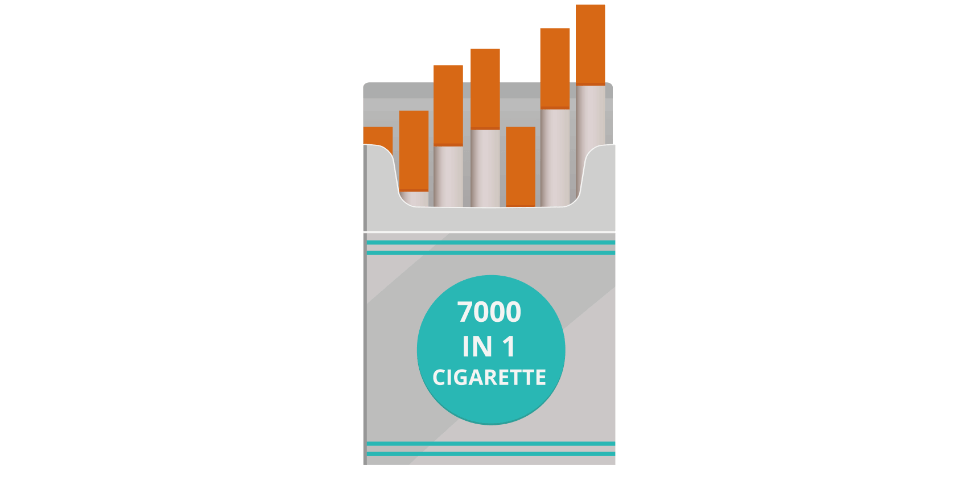National No Smoking Day – March 1st, 2017
Here are 7000 Reasons to Quit!
The HSE reported[1] that 18.7% of people were cigarette smokers in Ireland in 2016. Although smoking rates have declined in recent years, it still remains that more than 5,200 people in Ireland die every year from the effects of smoking, and half of all smokers will die from smoking-related diseases, according to the Marie Keating Foundation. Ireland remains the second-highest ranking country for smoking-related deaths in the EU–proving that, despite our efforts, we still have a long way to go.
The 7,000 reasons to quit smoking refers to the 7,000 chemicals found in ONE cigarette. It is no secret that smoking negatively affects your health. The following graph illustrates the most common smoking-related diseases:
Cigarettes – what exactly are you putting into your body?
If you’re thinking about quitting, maybe knowing exactly what you’re inhaling will help make up your mind. Of the 7,000 chemicals contained in tobacco smoke, many are poisonous. Over 60 cause cancer.
- Nicotine – Very quickly becomes addictive and affects the brain.
- Tar – Tar gathers in the lungs and is carcinogenic. It forms when tobacco cools and condenses.
- Carbon Monoxide – An odourless, colourless gas that interrupts how the heart and blood vessels work.
- Arsenic – This can occur in small amounts in cigarette smoke and is often found in rat poison.
- Ammonia – Ammonia is often used in cleaning products.
- Acetone – Best known for removing nail polish.
- Toluene – A toxic chemical often used in oils, rubbers, resins, adhesives, explosives and detergents.
- Methylamine – Used in tanning lotion.
Quit Smoking Today
There’s no doubt that quitting smoking is extremely hard. Here are a few facts to bear in mind if you’ve decided to quit:
Stop altogether or gradually? Statistics show that smokers who give up altogether are more successful than those who decide to cut down.
When do you smoke? Do you smoke when you have a drink or with colleagues during your break at work? Does a cigarette accompany your morning coffee? These times when you have a cigarette are called triggers and by replacing these with new routines, you’ll be less likely to reach for the pack.
Concerned about withdrawals? Withdrawals are often an unwanted side effect but they mean that your body is recovering from the trauma you’ve put it through by smoking. Some common withdrawal symptoms include not sleeping properly, coughing and resentfulness. They don’t last forever and will be worth the effort in the long run.
Do you really want a cigarette? Cravings can be hard to deal with and occur in the first few days after giving up. These also don’t last forever and you they should decrease in intensity after about five minutes. Aids to stop you smoking can be helpful for some people.
Don’t eat away your cravings After quitting smoking, some people over-compensate by filling up on food instead. Watch what you’re eating if you don’t want to pile on the pounds.





